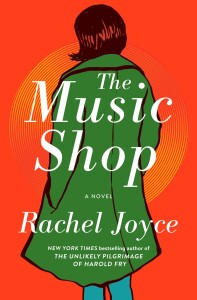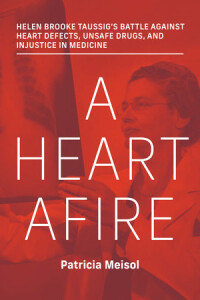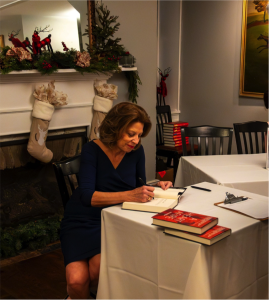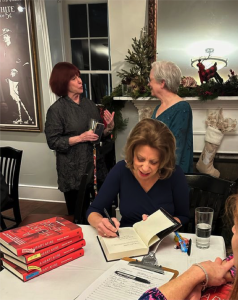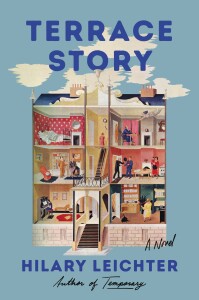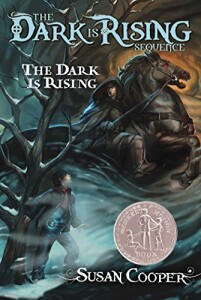
This time of year, when the sun begins to return even though winter is just beginning (in the northern hemisphere), has been celebrated with rituals throughout the centuries. Prehistoric monuments such as Stonehenge, the building of which is believed to have begun around 3100 BCE, identify the precise moment of the winter and summer solstices. They probably had other uses as well; certainly Stonehenge was also a burial site and may be been used for religious ceremonies, a healing site, and/or as an astronomical observatory.
My favorite books about the solstice are The Dark Is Rising sequence, five fantasy novels by Susan Cooper for young adults. The author draws on Arthurian legends, Celtic and Norse mythology, and English folklore to tell the story of the struggle between good and evil.
In keeping with the season, these are identified as the Light and the Dark, which raised no cultural sensitivity concerns when the books were published in the 1960s and 1970s. Whatever we might think today of the persistent identification of dark colors with evil, these are still the best terms to describe the turmoil at the time of the winter solstice, when the sun tries to return and the darkness resists.
In these stories Will Stanton discovers that he is one of an ancient mystical people called “Old Ones” who are gifted with magical powers. He is the seventh son of a seventh son, and his eleventh birthday is the moment when he comes into his powers, including the ability to move through time. He is tasked to find the four Things of Power which the Old Ones need in order to vanquish the Dark.
Cooper’s five books are truly wonderful, especially for someone like me who grew up with these myths and legends. I can still picture that corner of my neighborhood library, just to one side of the front door, that held the books that captured my imagination as a child and put me on the path to become a writer.
The return of the sun inspires us with hope. Whether you are celebrating the winter solstice, Christmas, Kwanzaa, Diwali, Hanukkah, St. Lucia’s Day, the Lunar New Year, Las Posados, or another festival, I wish you joy, health, love and peace, now and in the coming year.
What are your favorite books of the season, however you celebrate it?
